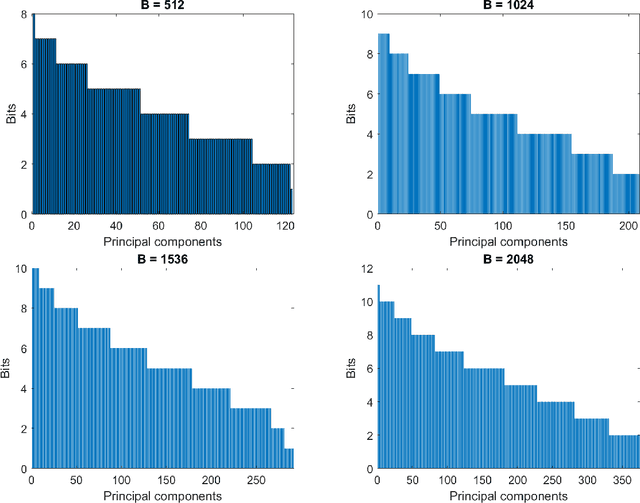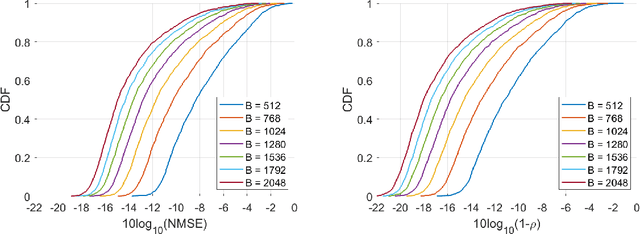Machine Learning-Based CSI Feedback With Variable Length in FDD Massive MIMO
Paper and Code
Apr 10, 2022



To fully unlock the benefits of multiple-input multiple-output (MIMO) networks, downlink channel state information (CSI) is required at the base station (BS). In frequency division duplex (FDD) systems, the CSI is acquired through a feedback signal from the user equipment (UE). However, this may lead to an important overhead in FDD massive MIMO systems. Focusing on these systems, in this study, we propose a novel strategy to design the CSI feedback. Our strategy allows to optimally design the feedback with variable length, while reducing the parameter number at the UE. Specifically, principal component analysis (PCA) is used to compress the channel into a latent space with adaptive dimensionality. To quantize this compressed channel, the feedback bits are smartly allocated to the latent space dimensions by minimizing the normalized mean squared error (NMSE) distortion. Finally, the quantization codebook is determined with k-means clustering. Numerical simulations show that our strategy improves the zeroforcing beamforming sum rate by 26.8%, compared with the popular CsiNet. The number of model parameters is reduced by 24.9 times, thus causing a significantly smaller offloading overhead. At the same time, PCA is characterized by a lightweight unsupervised training, requiring eight times fewer training samples than CsiNet.
 Add to Chrome
Add to Chrome Add to Firefox
Add to Firefox Add to Edge
Add to Edge